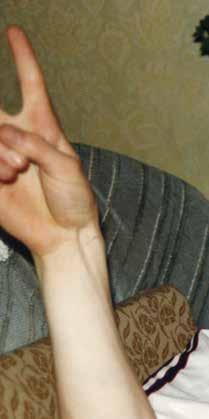
4 minute read
Martin Spain
BY MARTIN SPAIN
Not many people can say that they went to work every day under the watchful eye of the Special Branch. Or that the main (only) perk of their working week was a free meal on a Wednesday night, our publication deadline. That was what it was like to work for AP/RN in the late ‘80s, when I got my start.
We worked hard and earned practically nothing, but that was a decade when most young people had a choice of the dole or emigration. Like many people my age at the time, I was angry at what was going in Ireland and the world, and idealistic about how it could be changed.
Most of my contemporaries in the paper had been heavily politicised by the hunger strikes. For me, if there was one incident that motivated me to get involved, it was the 1988 SAS killings of three unarmed IRA Volunteers in Gibraltar.
In AP/RN, alongside like-minded people, what we didn’t get in pay was made up for with the education we got from the then editor, Rita O’Hare.
I’d barely been North of the border or out of the country before I started, so I had a huge amount to learn. Outside of our own struggle, in any given week, I might be researching and writing articles about everything from the struggle of the Mapuche people in South America to the Celtic League’s work to expose how British submarines had sunk several trawlers in Irish waters.
My fondest memories of the paper, as journalist and editor, are of the people. I worked with amazingly talented individuals over the years, many of whom have gone on to achieve great things. As editor, I even gave a start to the woman who, for her sins, would later become my wife.
The value of the paper leading up to the late nineties can’t be overstated. The struggle was ignored, maligned, and revised by those who never wanted to admit the truth about Britain’s dirty war in Ireland and AP/RN went some small way to giving the Republican family and some of the wider public the actual facts of what was happening on our island.
Over time, the success of the peace process, the defeat of state censorship, and Sinn Féin’s electoral advances meant the paper’s importance as a newspaper of record receded.
It was to be expected, especially with the challenges faced by all news print in the modern age. But it can still play a role, shouting through the noise to advocate for progressive politics in the age of social media.
I don’t know yet what the inevitable united Ireland will look like, but I am confident it will be enjoyed by my children’s generation. I was delighted the other day when my 11-year-old son revealed he knows all the lyrics to Come Out Ye Black and Tans. The next day, he got into the car and started humming Rule Britannia, which is, apparently, ‘a banging tune’.
I’m sure they’ll sort it out for themselves.

• 1989 Anti Extradition picket – Martin Spain (former editor), Brendan Ó Caoláin, Pauline
Brady (former proof reader), Larry O’Toole,
Mícheál Mac Donncha (former editor) and
Sean Mac Bradaigh (former editor)
Martin Spain was editor of An Phoblacht/Republican News from 1999 to 2005.


13-may-2004.pdf ©anphoblacht.com ©anphoblacht.com

17-june-2004.pdf
29june2004.jpg






16-sept-2004.pdf 24feb2005.jpg
28-april-2005.pdf


Bobby-sands-2006.jpg ©anphoblacht.com ©anphoblacht.com ©anphoblacht.com ©anphoblacht.com ©anphoblacht.com ©anphoblacht.com ©anphoblacht.com ©anphoblacht.com ©anphoblacht.com ©anphoblacht.com ©anphoblacht.com ©anphoblacht.com ©anphoblacht.com ©anphoblacht.com ©anphoblacht.com ©anphoblacht.com ©anphoblacht.com ©anphoblacht.com

ap22:06:2006.pdf 03-aug-2006.pdf



01-feb-2007.pdf



building the republic.jpg
12-july-2007.pdf










